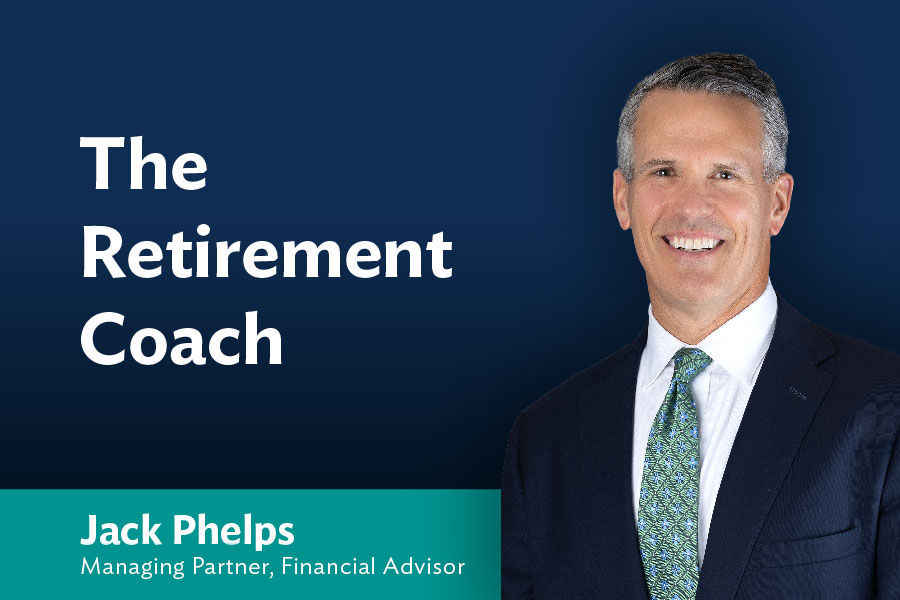Independence Day Habits for Your Children and Grandchildren

In honor of July 4th and Independence Day, I’d like to dedicate this edition to a special discussion of Independence.
As a parent, one of my goals has always been to have Caroline and Michael grow up to be as happy and “independent” as they can possibly be. I’m of the strong belief that there is a measurable link between the two.
As you grow older, the less you “have” to depend on your parents, your friends, your family, your employer, your government, etc., the happier you can be.
We’ve had a front row seat to witness this with our daughter Caroline’s transition from college to the working world three years ago, and now with our son Michael this summer.
This is not to say that you don’t want to be “inter-dependent.” In a free society, we’re all inter-dependent. We all want to bring value to the table in exchange for what others bring. You just don’t want to have your well-being and happiness in life entirely dependent on anyone or anything else.
As an adult, if you still have high levels of dependency, your stress level can increase and your level of happiness can decrease.
One of the areas that I believe is seriously lacking in attention in parenting and in school curriculums is teaching “financial literacy.” By financial literacy, I’m not referring to technical algorithms, etc. I’m referring to a basic understanding and comfort level with the flow of money, cause and effect, market forces, and compound interest.
From my own personal experience, I sure wish that I had been taught more at an early age. It would have saved me some serious bumps and bruises along the way.
Curriculums have changed substantially over the years since I was a kid, but one thing is the same. There is still little or no discussion about personal finances and how “money” works. Yet, if you take a step back and analyze it for a moment, a significant amount of the stress in our lives is dictated by the degree to which we have our financial house in order.
Think about that for a moment.
Contrasting Experiences
A few years ago, a friend shared a story about some contrasting experiences in this area. The stories were so compelling that I wanted to share them with you.
In one instance, their daughter, who is a professional working in Connecticut, was working extra hours babysitting for a well-to-do family with five children.
What she observed with this family was incredible.
First, the children are taught from birth that for every dollar that comes into their lives, whether that be from a gift, work, etc.:
- 1/3 goes to savings,
- 1/3 goes to charity, and
- 1/3 goes to spending.
Wow! You may challenge those percentages, but the principle and structure are impressive.
What do you think the impact on their lives will be by having this system ingrained in their minds?
How financially independent will they be at an early age vs. those who instead spend 110% of what they earn (with 10% placed on credit cards!)
Habit #2
The second habit she observed was that, at an early age, each of the five children took turns each month writing checks and paying the family’s bills, thus seeing first-hand how money flows and what things cost.
Again, how incredibly valuable at such an early age!
To contrast that, this same friend was walking down the streets of Boston after a Red Sox game with his brother and nephew who was a 21-year-old junior at Boston University at the time.
While waiting on the street for his brother to purchase a book, our friend and his nephew were standing outside a famous steakhouse reading the menu in the window.
Our friend was reading the a la carte prices of various items: filet mignon: $64, salad: $18, appetizers: $22, etc.
After he read them aloud (noting how much it costs to have a good meal at a nice restaurant these days), his nephew said, “Is that a lot?”
Imagine that!
He had no idea whatsoever! He has never paid for anything outside of using his parent’s credit card his entire life.
Now, even with the degree from a highly respected university, what do you think the financial path may be for this young man?
What do you think his own credit card bills could look like in 10 years (assuming his father finally stops giving him his “no limit” credit card to use)?
Colleen and I witnessed this exact situation with several of our kids’ friends in college and it has created unnecessary stress as each of them transitioned to work and apartment living on their own.
After reading this, I hope you found it as helpful as I did, and you pass it on to everyone in your family. Take the time to help improve the financial literacy of your children and grandchildren.
It might be the most important “Independence Day” gift you’ve ever given.
Happy Independence Day!

